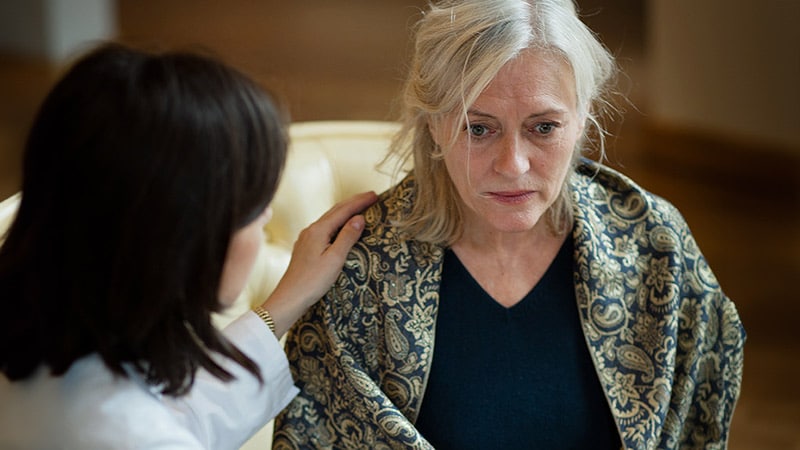Graduated compression stockings might be unnecessary in most patients undergoing elective surgery if anti-coagulant drugs are used, finds a UK multi-centre randomised controlled trial comparing venous thromboembolism (VTE) outcomes in hospitalised patients.
The findings suggest that current National Institute for Health and Care Excellence (NICE) guidelines might need revision and could save the NHS tens of millions of pounds annually.
Prophylactic use of anti-coagulant drugs alone was found to be non-inferior to anti-coagulants combined with compression stockings for reducing the risk of VTE (deep vein thrombosis (DVT) or pulmonary embolism) in elective surgery patients with moderate to high risk of VTE.
The study is reported in the May 13th edition of the BMJ.
Very Clear Outcomes
Professor Alun Davies, professor of vascular surgery at Imperial College Healthcare NHS Trust, London, led the study. "These are very clear outcomes suggesting that compression stockings are not necessary with no additional benefit of wearing graduated compression stockings seen," he asserted.
The current NICE guidelines are based on historical data and recommend use of both graduated compression stockings and low molecular weight heparin prophylaxis (LMWH) in patients at moderate or high risk of VTE. The study results strongly suggest it is time to change these guidelines.
"Potentially, we think that if the findings of this study were to be adopted by NICE, we predict around a £60 million cost saving to the NHS," he told Medscape News UK. "There’s enough evidence from this trial to warrant a change to the NICE guidelines now."
Overall the number of VTEs was much lower than anticipated, stressed Prof Davies, a finding that might be related to lots of different aspects of care, such as earlier mobilisation, better anaesthetic techniques, and patients being more aware of risks, he noted.
"It might be that anti-coagulants are more effective, and people are more attuned to using them. Around 8-10 years ago, VTE prophylaxis was more hit and miss and we used the so-called national CQUIN indicators for proper assessments and administration of prophylactic care," explained the venous disorders expert.
Prof Davies added that, "In fact, in some patients we actually screened for a DVT that may never have become symptomatic anyway." Symptomatic DVTs totalled three out of 1858.
'Landmark Study'
Professor Beverley Hunt, medical lead for Thrombosis UK, and professor of thrombosis and haemostasis at King’s College and Guy's and St Thomas's, London, welcomed what she termed this "landmark study".
"In the UK, we spend over £60 million a year on anti-embolic stockings in hospital inpatients and yet there has been surprisingly little evidence to support this practice. Now, this study shows that using modern surgical practices, there is no benefit in using stockings in patients undergoing surgery if they are already receiving small doses of blood thinners."
Similar enthusiasm for the results was reflected by Dr Susie Shapiro, consultant haematologist from Oxford University Hospitals NHS Foundation Trust who agreed that the study was a significant step forward for managing VTE in these patients.
"The finding that heparin injections alone were non-inferior to the combination of heparin and stockings for patients undergoing elective surgery should result in review of national and local blood clot prevention guidelines. It is therefore likely to change standard clinical practice for elective surgical patients."
Anticoagulants Non-inferior to Anticoagulants Plus Stockings
A 15.4% reduction in 90-day VTE mortality was recently reported since the introduction of a systematic approach to preventing hospital associated VTE in the UK in 2010, write the authors. This raises the suggestion that the combination of stockings and anti-coagulant drugs might now be unnecessary.
"The literature base did not suggest any adjuvant benefit of using the compression stockings, and so we initiated this trial," said Prof Davies, explaining the driver for the study.
The open, multicentre, randomised, controlled, non-inferiority trial was held in seven NHS hospitals across the UK and randomised 1905 elective surgical adult inpatients with moderate or high-risk of VTE. Moderate to high-risk patients (aged over 60 years or those who are operated on for 90 minutes or longer) comprise the vast majority of surgical patients, explained Prof Davies.
Just over half of patients (937) received either LMWH alone during their hospital stay and were asked not to wear any kind of compression stocking for 90 days after surgery, while the remainder (921) received the same heparin plus were given compression stockings to wear in hospital.
Imaging-confirmed lower limb DVT with or without symptoms, or pulmonary embolism with symptoms within 90 days of surgery comprised the primary endpoint. Secondary measures included quality of life, adverse reactions to anti-clotting drugs, and death from any cause.
Results relating to the primary outcome, showed a VTE event in 16 out of 937 (1.7%) patients in the anti-coagulant drugs only group, compared with 13 out of 921 (1.4%) patients in the anti-coagulants plus compressed stockings group. The risk difference between the two groups was 0.30% (95% confidence interval −0.65% to 1.26%), and because the 95% confidence interval did not cross the non-inferiority margin of 3.5%, the group randomised to anti-coagulants alone was determined non-inferior, write the authors.
Results were consistent across age range and baseline VTE risk severity.
Pulmonary embolism occurred in 2/937 (0.2%) participants in the drugs alone group compared with 1/921 (0.1%) in the drugs and stockings group. DVT with symptoms occurred in 2/937 (0.2%) participants in the drugs alone group compared with 1/921 (0.1%) in the drugs and stockings group.
Prof Davies added that initial estimates of the annual cost to the NHS of using surgical stockings in this setting exceeded £63m in England, and that the saving through modifying this practice based on the study findings would be substantial.
Professor Davies declares no relevant conflicts of interest.
Dr Shapiro declares potential pharma conflicts of interests – but none related directly to graduated compression stockings or heparin: meeting sponsorship, speaker fees and/or consultancy from Bayer, Pfizer, NovoNordisk, Sobi, Chugai/Roche and Shire/Takeda.
Professor Hunt is founder of Thrombosis UK but has no other relevant declarations.




